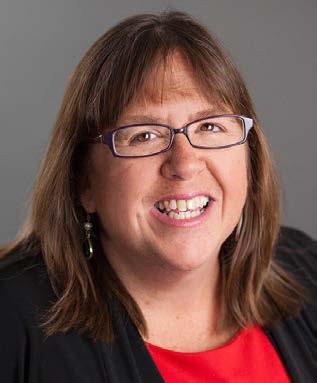
2 minute read
NH’s chambers of commerce ‘challenged’ by Covid
Chambers of commerce across New Hampshire have been at the forefront of efforts to help businesses weather the economic fallout from the coronavirus outbreak, but despite their own strained finances, they find themselves without a place in the queue for assistance.
From the onset of the pandemic, the chambers have served as liaisons and brokers between the state agencies in Concord and local business communities. Karmen Gifford, president of the Lakes Region Chamber of Commerce, said that for weeks officials from between 20 and 25 chambers regularly have taken part in a Lakes Region Chamber of call, initially with Gov. Chris Sununu and since with Taylor Caswell, commissioner of the Department of ‘are drying up’ during the Business and Economic Affairs. “We are a conduit,” pandemic. she said, “a channel of communication between the state and businesses.”
“We’re challenged,” said Tim Sink, longtime president of the Greater Concord Chamber of Commerce, “but I’m excited by the role we’re playing. Chambers are convenors. We bring people together.”
Some 40 chambers of commerce are scattered around the state, slightly more than half of them employing salaried staff and the rest drawing on volunteers.
“Most operate on a shoestring with little or no cash reserves,” said Sink. He explained that dues from members represent about 55% of revenues and proceeds from events about 45% to fund his chamber’s annual operating budget of $750,000.
“Revenues from dues are drying up,” said Gifford.
Likewise, John Nyhan, president of the Hampton Area Chamber of Commerce, said that many of his 500 members are in the hospitality sector — restaurants, lodging and entertainment venues — where operations have been severely affected by both the initial closures and subsequent restrictions.
Moreover, the chamber draws a major share of its revenue from summer events, especially the annual Hampton Beach Seafood Festival, which Nyhan said funds a quarter of the budget.
Wendy Hunt, president and CEO of the Greater Merrimack-Souhegan Valley Chamber of Commerce and chair of the New Hampshire Association of Chamber of Commerce Executives, said the chambers, which operate on “barebones budgets,” have reduced staff and trimmed hours to make ends meet. “It’s very frustrating,” she said. “We’ve never worked harder to put out information — and not just to members but to all businesses in our communities. We need some financial help.”
In May, Gov. Chris Sununu announced that $60 million in federal funds distributed through the Coronavirus Aid, Relief and Economic Security (CARES) Act would be designated to nonprofit organizations.
However, the wording of the CARES Act appears to permit funding to some nonprofit organizations while denying it to others, including chambers of commerce, which are classified differently by the IRS.
— MICHAEL KITCH










